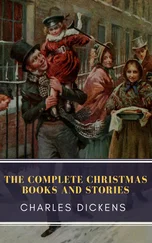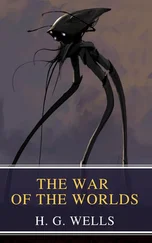Should well agree with our external parts?
Come, come, you froward and unable worms!
My mind hath been as big as one of yours,
My heart as great, my reason haply more,
To bandy word for word and frown for frown;
But now I see our lances are but straws,
Our strength as weak, our weakness past compare,
That seeming to be most which we indeed least are.
Then vail your stomachs, for it is no boot,
And place your hands below your husband’s foot;
In token of which duty, if he please,
My hand is ready, may it do him ease.
Pet.
Why, there’s a wench! Come on, and kiss me, Kate.
Luc.
Well, go thy ways, old lad, for thou shalt ha’t.
Vin.
’Tis a good hearing when children are toward.
Luc.
But a harsh hearing when women are froward.
Pet.
Come, Kate, we’ll to bed.
We three are married, but you two are sped.
[To Lucentio.]
’Twas I won the wager, though you hit the white,
And being a winner, God give you good night!
Exit Petruchio [with Katherina].
Hor.
Now go thy ways, thou hast tam’d a curst shrow.
Luc.
’Tis a wonder, by your leave, she will be tam’d so.
[Exeunt.]
¶
William Shakespeare
THE TWO
GENTLEMEN
OF VERONA
( 1594 )
First Folio, 1623
verona
¶
Act I
Sc. I Sc. II Sc. III
Act II
Sc. I Sc. II Sc. III Sc. IV Sc. V Sc. VI Sc. VII
Act III
Sc. I Sc. II
Act IV
Sc. I Sc. II Sc. III Sc. IV
Act V
Sc. I Sc. II Sc. III Sc. IV
The Names of All the Actors
Duke [of Milan], father to Silvia
Valentine ,
Proteus , the two Gentlemen
Antonio , father to Proteus
Thurio , a foolish rival to Valentine
Eglamour , agent for Silvia in her escape
Host , where Julia lodges
Outlaws , with Valentine
Speed , [page] to Valentine
Launce , a clownish servant to Proteus
Panthino , servant to Antonio
Julia , beloved of Proteus
Silvia , beloved of Valentine
Lucetta , waiting-woman to Julia
[Attendants; Musicians]
[Scene: Verona ; Milan ; and a forest somewhere between Milan and Mantua]
[Enter] Valentine, Proteus.
Val.
Cease to persuade, my loving Proteus:
Home-keeping youth have ever homely wits.
Were’t not affection chains thy tender days
To the sweet glances of thy honor’d love,
I rather would entreat thy company,
To see the wonders of the world abroad,
Than (living dully sluggardiz’d at home)
Wear out thy youth with shapeless idleness.
But since thou lov’st, love still, and thrive therein,
Even as I would, when I to love begin.
Pro.
Wilt thou be gone? Sweet Valentine, adieu,
Think on thy Proteus, when thou, happ’ly, seest
Some rare noteworthy object in thy travel.
Wish me partaker in thy happiness
When thou dost meet good hap; and in thy danger
(If ever danger do environ thee)
Commend thy grievance to my holy prayers,
For I will be thy beadsman, Valentine.
Val.
And on a love-book pray for my success?
Pro.
Upon some book I love I’ll pray for thee.
Val.
That’s on some shallow story of deep love,
How young Leander cross’d the Hellespont.
Pro.
That’s a deep story of a deeper love,
For he was more than over shoes in love.
Val.
’Tis true; for you are over boots in love,
And yet you never swom the Hellespont.
Pro.
Over the boots? nay, give me not the boots.
Val.
No, I will not; for it boots thee not.
Pro.
What?
Val.
To be in love—where scorn is bought with groans;
Coy looks with heart-sore sighs; one fading moment’s mirth
With twenty watchful, weary, tedious nights:
If happ’ly won, perhaps a hapless gain;
If lost, why then a grievous labor won;
However—but a folly bought with wit,
Or else a wit by folly vanquished.
Pro.
So, by your circumstance, you call me fool.
Val.
So, by your circumstance, I fear you’ll prove.
Pro.
’Tis love you cavil at, I am not Love.
Val.
Love is your master, for he masters you;
And he that is so yoked by a fool,
Methinks should not be chronicled for wise.
Pro.
Yet writers say: as in the sweetest bud
The eating canker dwells, so eating love
Inhabits in the finest wits of all.
Val.
And writers say: as the most forward bud
Is eaten by the canker ere it blow,
Even so by love the young and tender wit
Is turn’d to folly, blasting in the bud,
Losing his verdure, even in the prime,
And all the fair effects of future hopes.
But wherefore waste I time to counsel thee
That art a votary to fond desire?
Once more adieu. My father at the road
Expects my coming, there to see me shipp’d.
Pro.
And thither will I bring thee, Valentine.
Val.
Sweet Proteus, no; now let us take our leave.
To Milan let me hear from thee by letters
Of thy success in love, and what news else
Betideth here in absence of thy friend;
And I likewise will visit thee with mine.
Pro.
All happiness bechance to thee in Milan.
Val.
As much to you at home; and so farewell.
Exit.
Pro.
He after honor hunts, I after love:
He leaves his friends, to dignify them more;
I [leave] myself, my friends, and all, for love.
Thou, Julia, thou hast metamorphis’d me,
Made me neglect my studies, lose my time,
War with good counsel, set the world at nought;
Made wit with musing weak, heart sick with thought.
[Enter] Speed.
Speed.
Sir Proteus! ’save you! Saw you my master?
Pro.
But now he parted hence to embark for Milan.
Speed.
Twenty to one then he is shipp’d already,
And I have play’d the sheep in losing him.
Pro.
Indeed a sheep doth very often stray,
And if the shepherd be awhile away.
Speed. You conclude that my master is a shepherd then, and I [a] sheep?
Pro. I do.
Speed. Why then my horns are his horns, whether I wake or sleep.
Pro. A silly answer, and fitting well a sheep.
Speed. This proves me still a sheep.
Pro. True; and thy master a shepherd.
Speed. Nay, that I can deny by a circumstance.
Pro. It shall go hard but I’ll prove it by another.
Speed. The shepherd seeks the sheep, and not the sheep the shepherd; but I seek my master, and my master seeks not me: therefore I am no sheep.
Pro. The sheep for fodder follow the shepherd, the shepherd for food follows not the sheep; thou for wages followest thy master, thy master for wages follows not thee: therefore thou art a sheep.
Speed. Such another proof will make me cry “baa.”
Pro. But dost thou hear? gav’st thou my letter to Julia?
Speed. Ay, sir; I (a lost mutton) gave your letter to her (a lac’d mutton), and she (a lac’d mutton) gave me (a lost mutton) nothing for my labor.
Читать дальше












![Уильям Шекспир - The Works of William Shakespeare [Cambridge Edition] [Vol. 1 of 9]](/books/746589/uilyam-shekspir-the-works-of-william-shakespeare-c-thumb.webp)